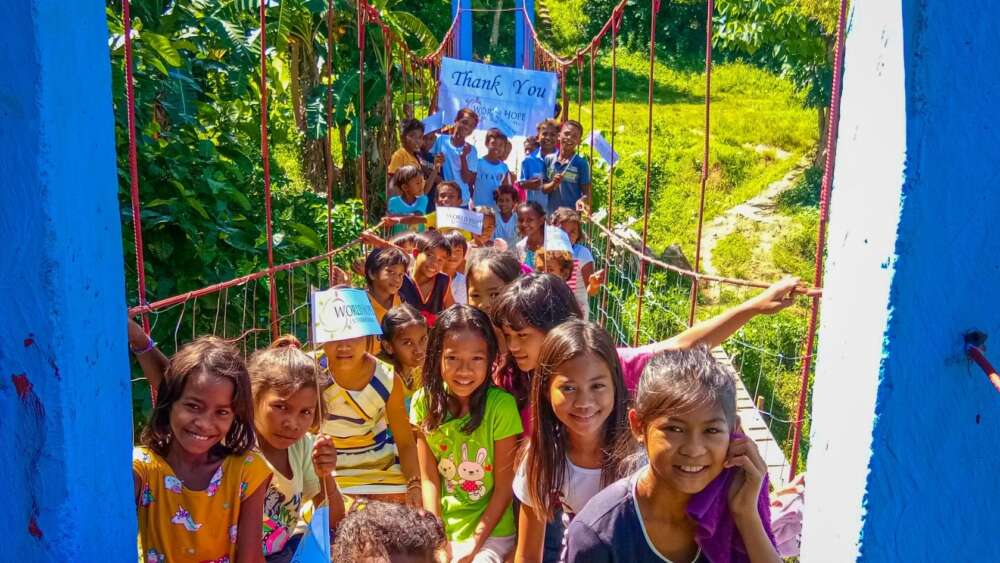Sexual exploitation of children is one of the most heinous crimes in the world today. It targets the most vulnerable members of society – children. Online Sexual Abuse and Exploitation of Children (OSAEC) is a phenomenon that emerged in recent years, involving the production, possession, and distribution of child sexual abuse materials and live streaming of sexual abuse or exploitation.
The scale of the problem
Research by UNICEF in 2016 identified the Philippines as the global epicenter of OSAEC, and found that 80 per cent of children in the Philippines are vulnerable to being victims of online sexual abuse or bullying, and that 2.5 per cent of children have had their nude bodies or sexual activities shown on the internet or a mobile phone.
The Philippines had the longest and most restrictive lockdown to contain the spread of COVID-19, commencing March 2020. Its Department of Justice has recorded a threefold increase in OSAEC cases since then. Sexual predators, locked inside their homes due to quarantine, increasingly turned to the internet in order to prey on children. Even more heartbreaking, the economic hardship resulting from the pandemic is compelling many Filipino families to participate in online sexual trafficking just to survive.
Responding to the crisis
World Hope International (WHI) has been an active player in the prevention campaign to spread awareness of OSAEC through local community partners and government social workers. To date, we have trained over 400 youth leaders and community leaders in OSAEC awareness, online safety, and referral protocols in several local communities.
Nursing the WOUND
The average age of survivors is 12, but children as young as two months old have been subjected to this horrific form of abuse. Children are groomed to perform sexual acts in photos or live streams for consumption by sexual predators – mostly from first-world countries.
These complex victim experiences, compounded by the sudden separation from their families, have tremendous negative impacts on both the mental and physical health of survivors.
WHI’s Protecting At-risk-children Vulnerable to Exploitation (PAVE) project commenced in 2017, its goal being to develop and strengthen systems for comprehensive care of survivors of OSAEC in the Philippines. To date, it has provided 162 OSAEC survivors with therapeutic interventions to support their healing, delivering big reductions in the level of trauma for the majority.
The Philippines has widespread poverty, lack of employment, internal and external migration, and cultural norms that uphold prioritising family wellbeing over self. This is augmented by high internet access rates and English proficiency, thereby creating an environment for people to be more easily taken advantage of, resulting in the prevalence of OSAEC.
At the heart of this crime are impoverished Filipino families. Research by the International Justice Mission (IJM 2020) concluded that OSAEC is usually a family-based crime. It found that of 217 victims where the relationship of the trafficker was known, the abuse was perpetrated by the biological parents (41 per cent) and other relatives (42 per cent). Of survivors rescued together, 40 per cent were siblings, and 13 per cent shared some other familial relationship.
Addressing the ROOTS
WHI has been responding to this crisis since 2018 through its reintegration programs. More than 150 families have been provided with medical services, educational opportunities, livelihood support, and connections to helpful networks.
In 2019, one mother watched in tears as her 14-year-old daughter, along with four other children, were rescued by government officers. She was dumbfounded to know that her daughter was lured by neighbourhood perpetrators into OSAEC; she had been groomed to believe it would be a good opportunity to help her siblings. After placement in a residential facility, WHI facilitated her eventual reintegration into her family and provided livelihood assistance.
WHI’s team of social workers are trained specifically to work with the survivors of OSAEC. Hear from one of our amazing team members in this video.
A Day in the life of an OSEAC Social Worker in the Philippines
Empowering families
WHI’s child sponsorship program in indigenous communities empowers families at a preventative level. Through education, children and their families are provided with a chance to be alleviated from poverty. Education serves as a powerful protection measure that enables children to be informed and to speak up about their rights. To date, there are about 350 students under the child sponsorship program in the Philippines.
There is no known incidence of exploitation and abuse among these children.
Families who are forced to find ways to survive each day due to socioeconomic disadvantage will remain vulnerable to possible exploitation. Providing opportunities for families to rise beyond poverty is key to reducing and eventually eliminating the root cause of this tragedy.
What you can do
Sponsor a child. There are many more children in the Philippines waiting for a sponsor.
When basic needs are met and opportunities are presented, there is no stronghold for trafficking, and families become less vulnerable and more empowered. WHI’s sponsorship addresses barriers to quality education within communities, covering tuition, uniforms, and supplies.
Find out how your sponsorship will make a positive impact on the life of a child.
Give to the Hope Education Fund. Your one-off or ongoing donation allows WHI to deliver teacher training and professional development, build or improve school buildings, and provide water, sanitation facilities and other basic infrastructure we often take for granted.
Email This Story
Why not send this to a friend?




